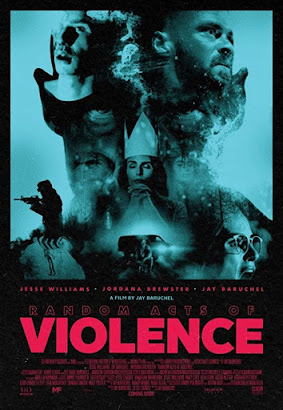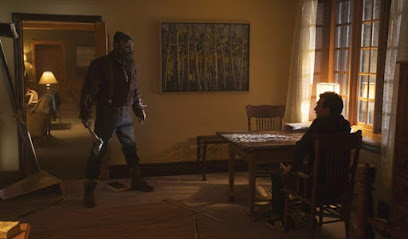They were a bunch of revolutionary manumission abolitionists(*)
And if you’re living on your knees you gotta rise up;
Tell your brother tell your sister you gotta rise up;
These colonies gotta rise up... time to take a shot.
"Isn’t
HAMILTON just a bunch of people of color telling white people’s story again?" A fan put that question to
Leslie Odom Jr., Aaron Burr in the original cast. Odom said: The founders were locals disenfranchised, they had been shut out of their story...they protested. I have hope we can get that right.
Daveed Diggs (Jefferson): We are watching the genesis of America. These historical figures are being embodied by a multiethnic cast...; [we assume] that the virtues of being American should be given to all Americans, right?...the show is an example of how to hold your country accountable.
Lin-Manuel Miranda, Hamilton’s author and star (above), is an empathic, witty, librettist, composer, thinker, artist— hip hop’s Shakespeare. This rap/jazz/ballad cum revolution of his will stand longer than any other of our classics; it’s more — more fun, meaningful, important: He says: “it’s the story of America then told by America now; people of color…under attack from emboldened white supremacy, police brutality, and centuries of systemic anti-black racism; it’s up to us to...lay claim to the story of our origins. Our labor built America…..[the same] debates have been there since our founding..…’
The musical (2015) has already proved ageless — in harmony with today’s BLM (dubbed a racial reckoning by Mayor, Murial Bowser, WDC) and millennia of minority struggle. The latter was Miranda’s personal entree to the story. Hamilton (1757-1804) a brilliant orphan from the tiny island of Nevis, was the proto-immigrant (‘immigrants — we get the job done’) a journey Miranda’s father took in leaving Puerto Rico for New York. Boot-strapper Hamilton was the only immigrant founder; the others were professionals, slave owners. Hamilton rose through sheer perpetual motion and brilliance detailed in
Ron Chernow’s biography.
Above, Aaron Burr leads the cast in rapping Alexander’s bio:
How does a bastard orphan dropped in the middle
of a forgotten spot
in the Caribbean, impoverished, in squalor,
grow up to be a hero and a scholar?
The ten-dollar founding father without a father;
got a lot farther by working
a lot harder,
by being a lot smarter; by being a self starter…
Scamming for every book he could get his hands on...
now…[he’s] headed to New York...in New York you can be a new man.
‘Not throwing away My shot’:
I’m a diamond in the rough, a shiny piece of coal;
I’m just like my country, young, scrappy and hot;
I’m not throwing away my shot…..
Burr, a wealthy aristocrat and lifelong competitor of Hamilton, was more opportunist than patriot. The two were friends turned vicious enemies; Hamilton’s rage was fueled by Burr’s lack of principles (‘You stand only for yourself’)—the Lindsay Graham of the 1700’s: ( ‘King George runs a spending spree; He ain't never gonna set us free. Why should a tiny nation across the sea tax our tea?) Hamilton connived with purpose for the revolution (‘I will lay down my life if it sets us free’). Their warring lasted till Burr stopped it with a bullet. (‘and me? I’m the damn fool that shot him.’)
King
George III (the pastiest white cast member,
Jonathan Groff) minces on stage (above) doing his best sour grapes, spoiled Trump routine (Do authoritarians look alike?):
When push comes to shove, I will send a fully armed battalion
To remind you of my love...I will kill your friends and family
To remind you of my love. I will love you til my dying days;
When you’re gone I’ll go mad.
Da da da dat da, dat da da da dai ah
We witness the founding political fights in so precipitous an avalanche of rapped words/song that Hamilton’s story should take half a day not under three hours. There’s a poignant bit of Burr’s romantic life, Hamilton’s courtship of Eliza Schuyler (above, left,
Philippa Soo), his bond with her beautiful, brilliant older sister Angelica (the exceptional
Renée Elise Goldsberry) with whom he had a mind meld, the Maria Reynolds’ scam (below,
Jasmine Cephas-Jones as the temptress involved in the first US political sex scandal), Washington’s refusal to claim a third term (beautiful-voiced
Chris Jackson). Strung together with domestic detail, the story of war, Constitution, and founder conflict is eternal — noble, ignoble —Shakespearean.
There’s plenty delight in song/story/dance here, but to follow the politicking, dense exposition, and history, having the words cc’d on your screen is fine help. So too the closeups that director
Thomas Kail provides — Georgie’s spittle, the sweat, the grief, the camaraderie on faces, clever choreography, staging — the sticks and stones of 13 disparate colonies that matures brick by brick into a nation.
And it is half-remembered and such surprise that it was Hamilton who designed the structure that holds our states together, while Jefferson wrote down its principles and got more credit. We watch the sausage being made in ‘
The room where it happened’ (John Bolton swiped the song title for his book) among the federalists who favored a federal bank, single currency, shared debt, vs southern states righters who insisted on slave economics.
Jefferson (above, the adorable, irresistible Mr. Diggs, who dandies Jeff up more than history did):
Our debts are paid; don’t tax the south
cause we got it made; we plant seeds in the ground...
You just want to move our money around.
Hamilton:
Thomas, welcome to the present we are running a real nation.
Would you like to join or stay mellow
doing whatever it is you do in Monticello? (shown below.)
If we assume the debts, the union gets a new line of credit,
a financial diuretic, how do you not get it?
Hamilton, backed by Washington, defends his economic scheme in the new media of the 1700’s, printed pamphlets, known to us as the Federalist Papers— in 1788, the new constitution got approved with a stunning trade. Hamilton gets his bank and financial plan by giving up New York as capitol for the Potomac. Bless them, the plantationers gave ground on policy for a shorter commute. Now that was a deal Hamilton devised (below) to avoid the bad results of Europe’s warring states with a scheme to prevent the colonies from descending into fiefdoms. This was the era of Enlightenment and John Locke liberalism, with Hamilton a disciple of Locke’s monetary principles. (It is noteworthy that the young EU has only just instituted a similar scheme.)
Hamilton was not rewarded in his lifetime. News of a sexual dalliance in the early 90’s, in which he was blackmailed by the unscrupulous Reynolds couple, was about to hit print at Burr’s instigation; it ruined his political career and almost his happy marriage; his outrage at Burr led to their duel and Hamilton’s death at 47. The public was shocked and Burr forever reviled. (‘I was the villain in your history’). Eliza Schuyler died 50 years later at 97, having championed her husband’s legacy and begun the first private orphanage in NYC (it provides family services today). Hamilton, the overlooked founder, may have been the greatest, “the technician behind [our] rise to economic, political, and martial greatness,” says historian Alexander Rose.
Hamilton is now on film via
Disney+.
NOTES:
2. History Channel: a
documentary on the life of Hamilton filling in the blanks.
3.
Hamilton: History Has Its Eyes On Us At Disney+; Robin Roberts led hour-long discussion with Miranda, cast members, his creative team, a noted historian, clips from the film, and children performing bits from Hamilton including a British teen chorus and a 3 year old singing George III. Worth it to see the kids.
4.
Eduham; created to disseminate materials for kids, teachers,grades 6-12, to reenact Hamilton/learn history.




















































